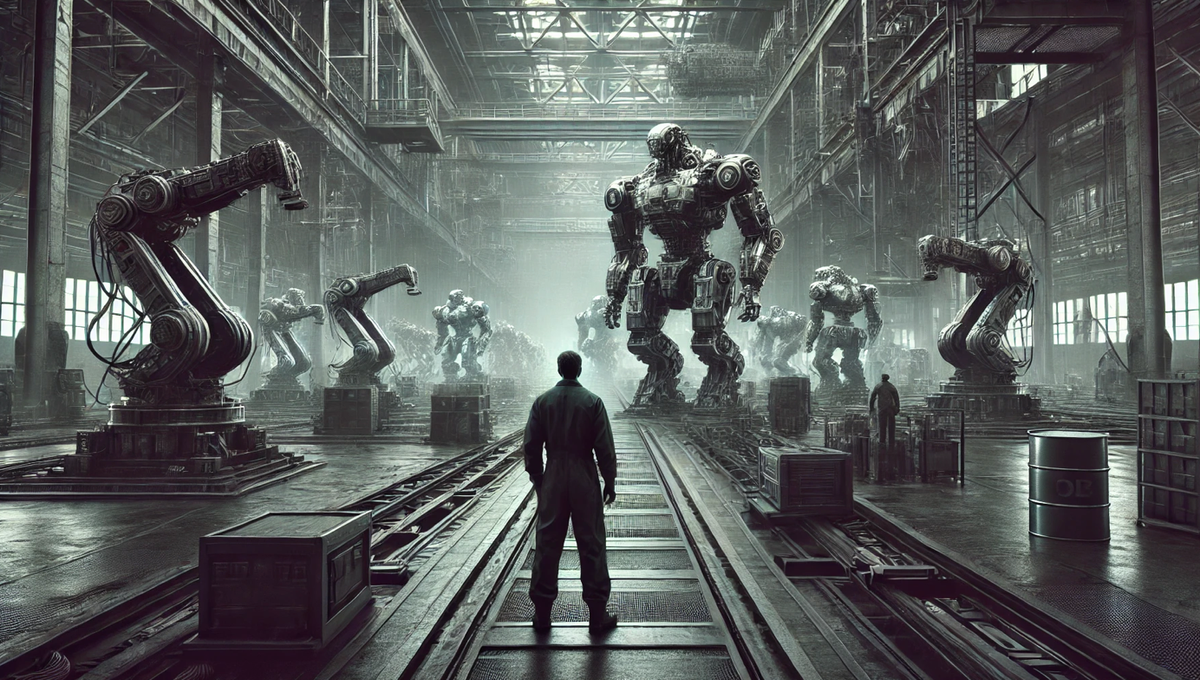Working with robots is really depressing, economists confirm
"Our results indicate the hidden health costs of automation that policymakers need to address."

Collaborating with humans is not always a walk in the park. But it turns out that working with robots may be much worse, exerting a psychological toll felt most keenly by the working classes but also impacting people of all levels of education.
A team from the Vienna University of Economics and Business has warned that increasing automation of workplaces is having a disastrous effect on workers' well-being.
The researchers analysed data from the German Socioeconomic Panel, an annual survey of about 15,000 private households, and data relating to the stock of robots across 14 manufacturing sectors collected by the International Federation of Robotics between 2002 and 2018.
They discovered that "higher robot intensity" is associated with "deteriorating mental health" driven mostly by worries about job security and a "lower sense of achievement on the job".
The rise of robots has a particularly severe negative effects on the mental health of workers close to retirement, in low-skilled occupations and those performing routine jobs. Women and men are affected in a similar manner - as are workers of all educational levels.
This effect is primarily driven by worries about job security and a lower sense of achievement on the job.
Automation "could also be influencing physical health outcomes directly", the team wrote, although more research would be required to confirm this hypothesis.
"Our results indicate the presence of hidden health costs of automation that policymakers need to address," the economists warned.
The impact of automation
The International Federation of Robotics reports that the number of industrial robots worldwide has grown from 400,000 in 1990 to more than three million in 2020.
Between 9% and 12% of occupations are "susceptible to automation", the Vienna economists wrote, with some earlier studies claiming up to 47% of roles are at risk.
People close to retirement, working routine jobs or in low-skilled occupations are most worried about being replaced by robots.
Unfortunately, even if humans manage to hold onto their jobs during the robotic revolution and the GenAI onslaught, they may find the jobs they are left with are bleak, unfulfilling and utterly depressing.
"Our results suggest that the more automation – in terms of industrial robots in production – in a sector, the worse the mental health of employees,” says Dr Ana Lucia Abeliansky, Assistant Professor at WU, and her fellow researchers.
The team called on governments to urgently consider the impact of automation and other technologies on mental health.
They wrote: "Our results are important from an economic perspective for two main reasons. First, mental health has a large impact on individual productivity and thus has first-order effects on economic growth. In addition, and perhaps much more importantly, mental health has direct implications for individual (and, by extension, social) well-being.
"Accordingly, the side effects of new technologies – such as automation – on mental health should not be ignored by policymakers... It is important to ensure the functioning of social security systems that protect those who suffer from automation, particularly with respect to health insurance and unemployment insurance coverage."
Read the full paper: Are they coming for us? Industrial robots and the mental health of workers
Have you got a story to share? Get in touch and let us know.




